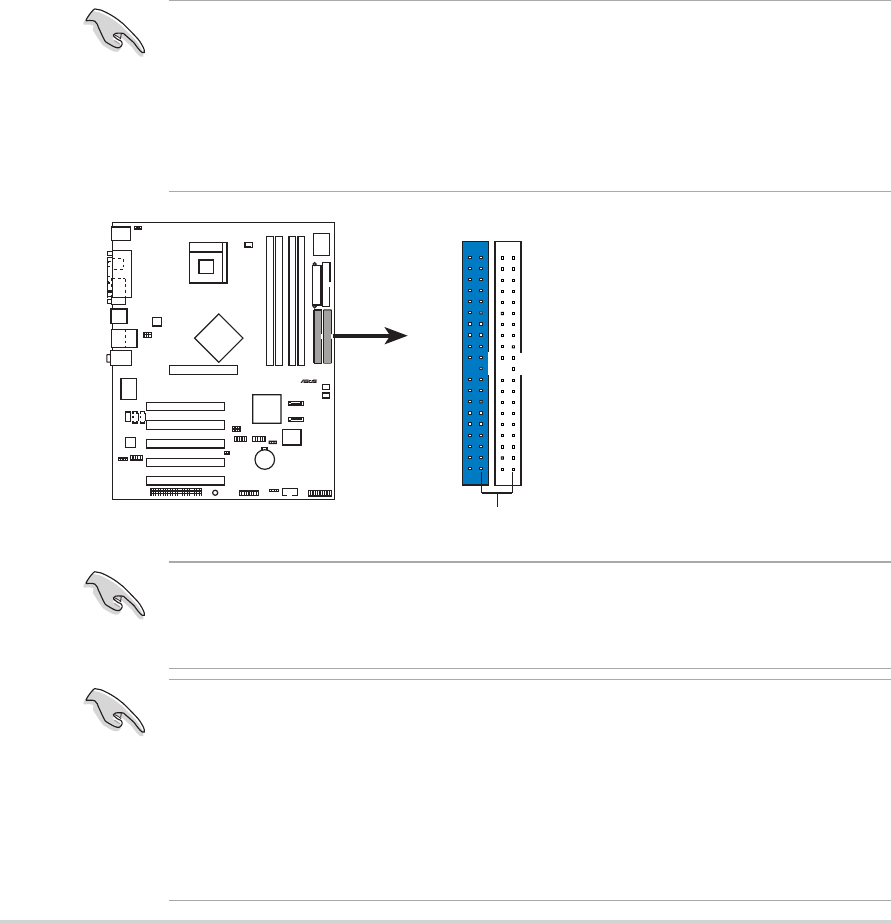
2-24
Chapter 2: Hardware information
2. IDE connectors (40-1 pin PRI_IDE1, SEC_IDE1)
This connector supports the provided UltraDMA100/66 IDE hard disk
ribbon cable. Connect the cable’s blue connector to the primary
(recommended) or secondary IDE connector, then connect the gray
connector to the UltraDMA100/66 slave device (hard disk drive) and
the black connector to the UltraDMA100/66 master device. It is
recommended that you connect non-UltraDMA100/66 devices to the
secondary IDE connector. If you install two hard disks, you must
configure the second drive as a slave device by setting its jumper
accordingly. Refer to the hard disk documentation for the jumper
settings. BIOS supports specific device bootup. If you have more than
two UltraDMA100/66 devices, purchase another UltraDMA100/66
cable. You may configure two hard disks to be both master devices
with two ribbon cables – one for the primary IDE connector and
another for the secondary IDE connector.
P4P800
®
P4P800 IDE Connectors
NOTE: Orient the red marking
s
(usually zigzag) on the IDE
ribbon cable to PIN 1.
SEC_IDE1
PRI_IDE1
PIN 1
1. Pin 20 on each IDE connector is removed to match the covered
hole on the UltraDMA cable connector. This prevents incorrect
orientation when you connect the cables.
2. The hole near the blue connector on the UltraDMA100/66 cable is
intentional.
For UltraDMA100/66 IDE devices, use an 80-conductor IDE cable. The
UltraDMA/66 cable included in the motherboard package also supports
UltraDMA100.
Important notes when using legacy OS
• Refer to page 2-26 on how to configure P-ATA and S-ATA devices
if you installed a legacy operating system (e.g. MS-DOS, Windows
98/ME/NT4.0).
• In legacy OS, manually set DMA mode in Device Manager under
System Properties, if your hard disk supports UDMA mode.


















